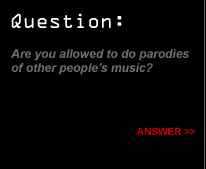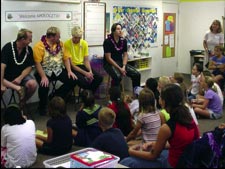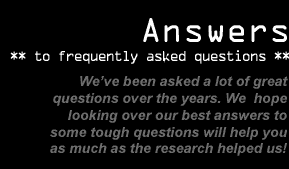|
Are some hymns just rewritten bar songs?
Legend has it that Martin Luther and John & Charles Wesley (of the Methodist Church) rewrote popular music from the taverns to accompany some of their hymns. Recently, church scholars have presented pretty convincing proof that Luther and the Wesleys did NOT do so, and that the legend arose from a misconception about the word "bar tune" or "bar form," which seminary students assumed meant a tune sung in local drinking establishments, but is actually a form of poetry popular in Medieval times -- a different kind of bar altogether.
Although Luther and the Wesleys may not have used parodies, another famous hymn writer did:
Francis (Fanny) Crosby was one of the most prolific hymn writers ever, having penned the lyrics to something like 9,000 hymns, including many that are still favorites today including "Blessed Assurance", "Pass Me Not Oh Gentle Savior", and "Safe in the Arms of Jesus." One biography of Fanny Crosby (ISBN 1-55748-731-6) adds this tidbit:
"By the early 1870s, she was well on her way to becoming the queen of hymn writers. Fanny often matched her poems to familiar tunes. An example is "We Thank Thee, Our Father," written to the melody of the famous "Adeste Fidelis." She set poems to Scottish and Welsh airs and used tunes by Stephen Foster."
Furthermore, the founder of another very influential evangelical denomination used parodies, too. William Booth, founder of the Salvation Army, an extremely evangelical organization that did much to help the poor and the drunks in the streets, used the music of popular tunes for hymns. In the biography, "William and Catherine Booth: Founders of the Salvation Army," by Helen K. Hosier, it states the following:
"Satan would have to be battled within his own strongholds, and any means was justifiable, William decided, if it would attract sinners to listen to the message of salvation ... Thus it was that as the work grew, the music and street parades attracted increasing crowds of people who scorned the regular churches. 'Why should the devil have all the best tunes?' Williamreplied when chided for appropriating music of popular tunes for his hymns ... "
"The saying that 'the devil has no right to all the good tunes' has been attributed to both William Booth and Charles Spurgeon. But it was George Scott Railton, who was to become William's lieutenant general in 1873 and was well-known as an author and songwriter, who concluded an article 'About Singing' (1874) with this impassioned plea: 'Oh, let us rescue this precious instrument from the clutches of the devil, and make it, as it may be made, a bright and lively power for good!'"
The people in the Salvation Army weren't the first to use secular music for sacred purposes, though. Note the following:
"[The absence of contrast between 'secular' and 'sacred' styles of music in the Middle Ages] 'can be shown simply by the observation that a secular song, if given a set of sacred words, could serve as sacred music, and vice versa. Only recently has it been recognized how frequently such interchange took place, and the more we learn about medieval music, the more important it becomes. The practice of borrowing a song from one sphere and making it suitable for use in the other by the substitution of words is known as "parody" or contrafactum.'
(Source: Manfred F. Bukofzer, 'Popular and Secular Music in England', inThe New Oxford History of Music 3: Ars Nova and the Renaissance, 1300-1540, ed. Anselm Hughes and Gerald Abraham (London: Oxford University Press, 1960), p. 108.)
For more information on contrafactums, please go to:
http://www.soton.ac.uk/~wpwt/notes/contraf.htm
|




